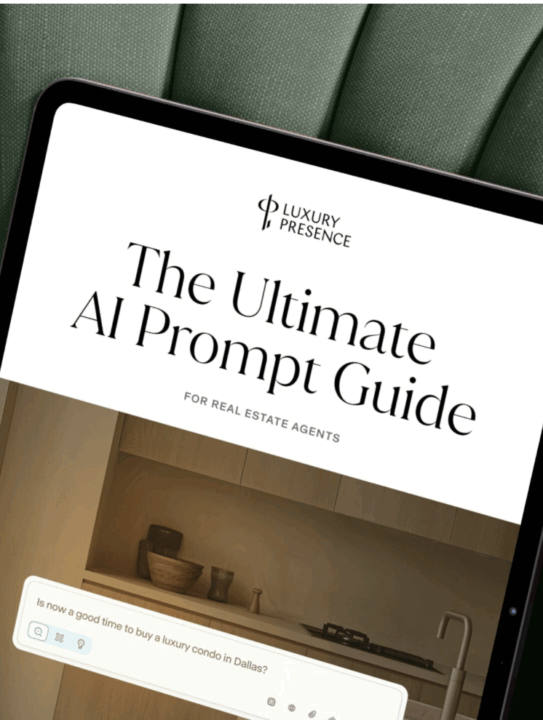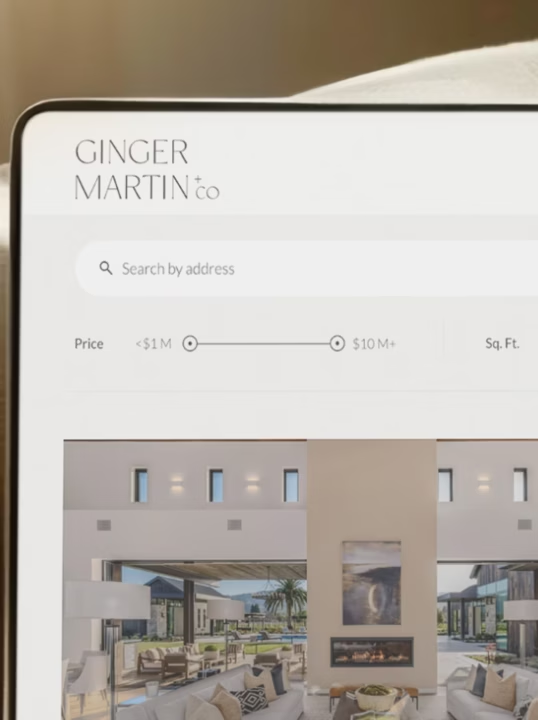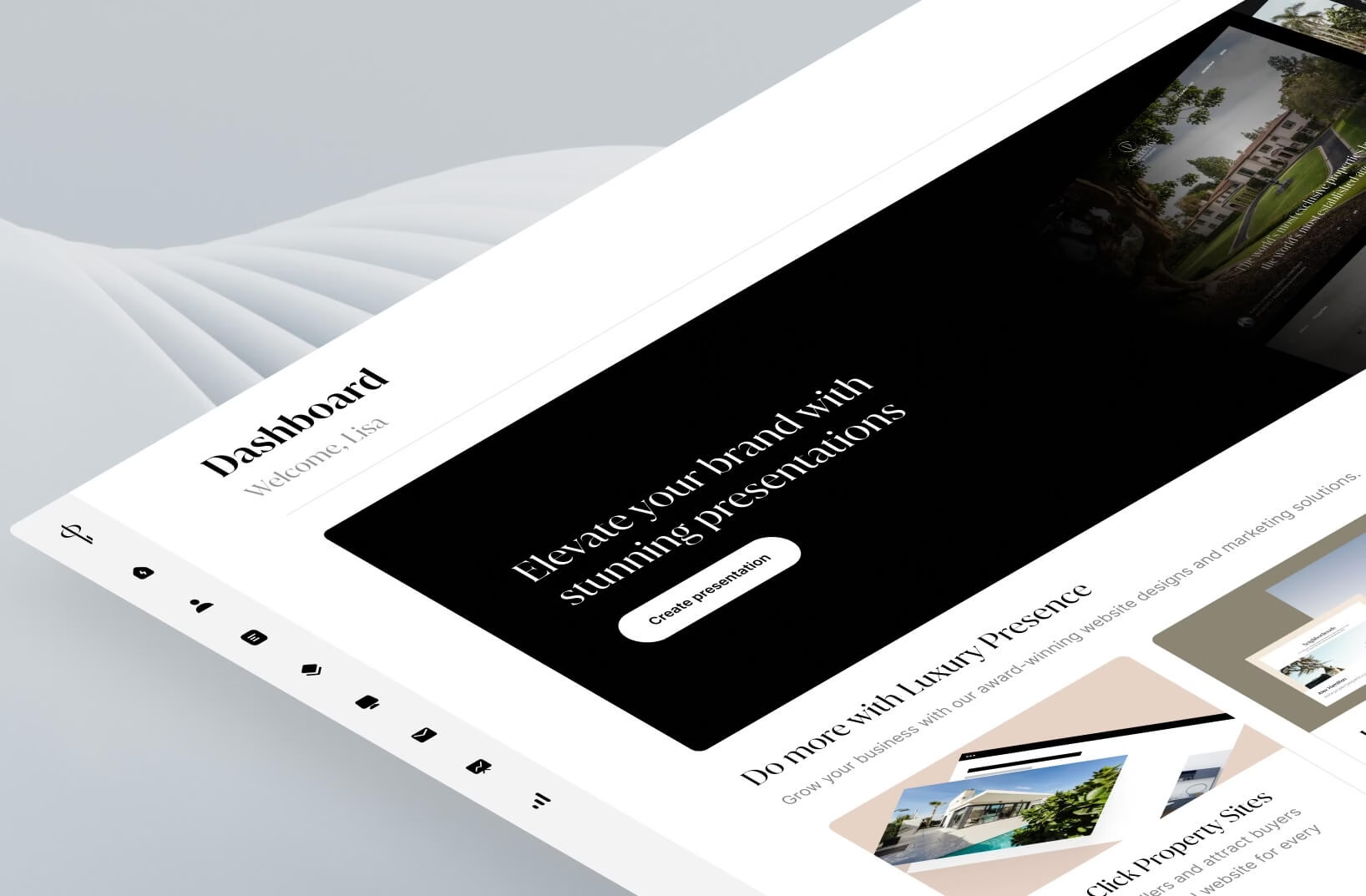
Large language models (LLMs) like ChatGPT and Claude are reshaping how real estate professionals work, speeding up listing descriptions, generating marketing copy, and automating client communication. But as these tools become more common in daily workflows, they also raise an important question: How do you use them responsibly, especially when client data is involved?
This article explains why responsible LLM use is crucial right now, outlines the risks of misuse, and offers a practical, agent-specific guide to protecting client trust while leveraging the power of AI.
Find It Fast
Why responsible AI use is now a business-critical skill
LLMs are more than trendy productivity tools. They’re rapidly becoming integrated into website builders, CRM platforms, email campaigns, and even transaction workflows. With the right input, they can produce polished, on-brand content in seconds. That means what used to take agents hours (writing bios, summarizing market data, drafting buyer guides) can now be done in minutes.
But with speed comes risk. Many LLMs process data via cloud-based systems, which can retain or learn from your inputs depending on how they’re configured. When client information — like addresses, pricing discussions, or financial details — is entered into public-facing tools, that data could inadvertently be stored, shared, or retrieved in future outputs.
In an industry built on relationships, reputation, and trust, how you handle that data matters. As AI usage increases, agents who are careless with client information risk not just a privacy breach, but long-term damage to their credibility.
Understand what LLMs do and don’t do
An LLM doesn’t “know” your client. It uses statistical prediction to generate plausible-sounding text based on the data it has been trained on. Public LLMs like ChatGPT’s free version or Google’s Gemini may use your inputs to improve the model unless you opt out or use an enterprise account with stricter data policies.
Treat anything you enter into a public AI tool as potentially viewable by others. If you wouldn’t paste it into a public Slack channel or email it to a stranger, it doesn’t belong in a chatbot prompt.
The Ultimate
AI Prompt Guide
The shortcut to AI mastery starts here.

Practical guidelines for ethical LLM use
Here are actionable ways to use AI tools in your business without compromising client privacy:
1. Never paste sensitive client data into public tools
Avoid using real names, addresses, financial documents, or transaction terms in prompts. Instead, write in general terms or use placeholders like “{client name}” and “{property address}.”
Why it matters: This prevents unintended exposure of personally identifiable information.
2. Use AI for structure, not substance, when working with client files
LLMs are ideal for outlines, summaries, checklists, and brainstorming, but avoid delegating contract language, pricing emails, or compliance-related content.
Why it matters: Real estate involves legal and financial nuance that AI tools are not equipped to handle reliably.
3. Review all AI-generated content for accuracy and tone
LLMs can fabricate facts (“hallucinate”) or generate generic language. Before publishing anything drafted with AI, review it carefully to ensure that property details, local references, and client context are accurate.
Why it matters: It protects your brand and ensures your messaging feels personal, not robotic.
4. Use secure platforms with AI built in
Where possible, use AI features inside trusted tools like your CRM, brokerage platform, or website provider. These tools often have stricter privacy controls and won’t retain your data for public use.
Example: Luxury Presence offers secure, AI-enabled website and marketing tools built specifically for real estate professionals. We manage more than 40,000 live websites, and our platform generated nearly 500,000 exclusive leads for clients in 2024 alone, all while prioritizing data protection. With $300 billion in transactions closed in 2024 and clients averaging 24.8 deals per year, more than twice the industry average, our community understands that digital acceleration must be paired with data discipline. Your clients expect results, but they also expect discretion.
Operational tips for day-to-day AI use
To go beyond broad guidelines, here’s how to operationalize responsible AI use in your workflow:
- Track how you use AI: Keep a record of which content was AI-generated and for what purpose. This adds transparency and helps with future review.
- Train your team and vendors: Anyone writing or editing on your behalf should follow the same AI usage protocols you do.
- Create a “Do Not Automate” list: Certain messages, such as pricing discussions, offer negotiations, or legal explanations, should always be handled manually.
- Use on-device or enterprise AI tools when possible: Tools like ChatGPT Team or Claude for Business offer more robust data protections than free-tier versions.
- Add basic disclosure when appropriate: If AI was used to draft part of a listing presentation or client guide, consider noting that. It builds transparency and professionalism.
AI is here to stay. So is your reputation.
Large language models are changing real estate marketing, prospecting, and communication. But how you use them and whether you protect your client’s data while doing so will define your long-term success.
At Luxury Presence, we’re building tools that help you leverage AI responsibly, without compromising the values that built your business. That means smarter marketing, better client experiences, and a brand that earns trust at every touchpoint.
Get the platform that drives results.
Agents using Luxury Presence grew sales nearly 2x faster than their peers, increased sold listings by 6%, and closed over $300B in transactions. Ready to grow your business? Let us show you how.




